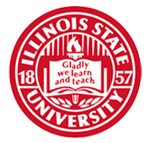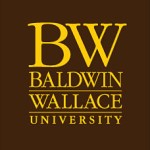Aims & Scope
Teaching and Learning in Communication Sciences & Disorders (TLCSD) publishes articles that reflect current and exemplary scholarship of teaching and learning (SoTL) research in speech-language pathology and audiology.
Articles submitted to TLCSD may also reflect current trends in the format of SoTL work, including original research, quantitative or qualitative in nature, reflective essays and case studies, both grounded in the literature. Recognizing the diverse experiences and perspectives of our readers and contributors, TLCSD strives to foster evidence-based educational practices that build capacity for all potential educators and students. We welcome inquiries to the Editor regarding the potential for unique and novel work that is related to the content of the journal. We invite manuscripts which also fall within the umbrella of evidence-based education in CSD, including:
- Scholarship of Teaching & Learning Research: These manuscripts represent new investigations of teaching and learning and could include original research, meta-analyses, or scoping reviews. Scholarship of Teaching & Learning Research articles clearly reflect a systematic approach to studying teaching and learning that is data-based (qualitative, quantitative, or mixed-methods) in nature. These manuscripts should reflect systematic inquiry that helps readers better understand the complexities of teaching and learning in CSD.
- Pilot SoTL Studies: Pilot studies represent emerging and developing research on teaching and learning. Submissions in this category should include an explanation of early results from the investigation and should provide explanations for any limitations in the study as well as report on plans for next steps for the future.
- Scholarly Teaching: A Scholarly Teaching manuscript serves as a bridge between existing research on teaching and learning and its practical application in CSD. Scholarly teaching manuscripts describe an instructor’s application of evidence-based pedagogical approaches in their own teaching/learning contexts often with the goal of improving student outcomes. While Scholarly Teaching manuscripts do not necessarily generate generalizable knowledge, they do tell the story of evidence-informed teaching and intentional instructional design, typically using some sort of evaluative data (e.g., student outcomes, feedback, course data), but the methods are typically less rigorous than formal SoTL research. Unlike Tutorials, Scholarly Teaching manuscripts serve to inform readers about instructional practices that are context-bound rather than prescribing implementation practices. It provides a framework for how CSD educators and clinicians can adopt, adapt, and implement evidence-based pedagogical strategies.
- Tutorials: Tutorial manuscripts are instructive writings that aim to teach readers a specific skill, method, or approach in teaching or learning. The goal of these manuscripts is to support readers’ practical understanding and application of evidence-based educational practices. Tutorials focus on explaining a pedagogical approach, tool, or concept in a manner that might not include original data but that is grounded in educational theory and literature. Written in a didactic tone, tutorials guide readers through step-by-step processes and procedures to implement new teaching and learning practices, often using case examples or vignettes to do so.
- Reflections on SoTL: Reflections on SoTL manuscripts offer a “behind-the-scenes” look into the scholarly inquiry of teaching and learning. The purpose of this manuscript category is to illuminate the often-complex and intellectually rigorous process of conducting SoTL research. These articles focus on the story behind SoTL and scholarly teaching—the critical decisions, unforeseen challenges, ethical dilemmas, and personal insights gained through experiences. While traditional research articles focus on the “what” (the findings), a Reflection article focuses on the “how” and the “why” by linking experiences to existing literature. By sharing these experiences, authors demystify the research process and foster a more open and collaborative SoTL culture. Reflection manuscripts must be transferable, offering lessons, cautionary tales, or guiding principles that apply to other SoTL scholars.
- Student Voices: Student Voices manuscripts include original research, reflections on the SoTL research process, reflections on student experiences with evidence-based learning, or the reporting of pilot data. This type of manuscript is reserved for articles that feature a student as the first author of the submitted paper with the expectation that faculty mentor(s) is/are actively involved in the writing and editing of the manuscript.
- Professional Learning in Practice: These manuscripts focus on professional development or continuing education initiatives that focus on the design, implementation, and outcomes of educational initiatives aimed at enhancing professional knowledge, skills, competencies, or practices among professionals in CSD (e.g., course instructors, clinical educators, practicing clinicians). Submissions should describe the goals and structure of the professional development activity (e.g., workshops, communities of practice, continuing education programs), provide evidence of impact (e.g., changes in clinical practice, learner self-efficacy, client outcomes, or interdisciplinary collaboration), and discuss implications for ongoing professional development or continuing education in CSD.
- Emerging Thinking/Directions: This manuscript category welcomes scholarly works that explore the theoretical and practical foundations of SoTL as they relate to the field of CSD. Submissions may include thought pieces, conceptual essays, or adaptations of existing SoTL frameworks from other disciplines. Manuscripts should offer new insights, propose innovative approaches, or identify emerging practices that can inform and inspire SoTL efforts within CSD. Authors are encouraged to bridge disciplinary boundaries and offer forward-looking perspectives that support the ongoing evolution of evidence-informed teaching and learning in CSD.




